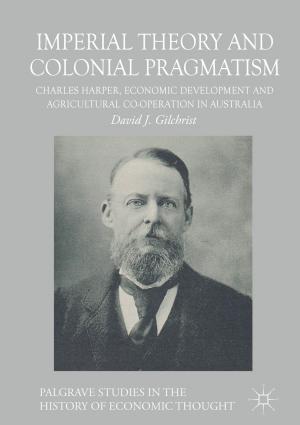Transforming Heritage Practice in the 21st Century
Contributions from Community Archaeology
Nonfiction, Social & Cultural Studies, Social Science, Archaeology, Anthropology, History| Author: | ISBN: | 9783030143275 | |
| Publisher: | Springer International Publishing | Publication: | June 14, 2019 |
| Imprint: | Springer | Language: | English |
| Author: | |
| ISBN: | 9783030143275 |
| Publisher: | Springer International Publishing |
| Publication: | June 14, 2019 |
| Imprint: | Springer |
| Language: | English |
Recent years have witnessed a rapid increase in the fields of cultural heritage studies and community archaeology worldwide with expanding discussions about the mechanisms and consequences of community participation. This trend has brought to the forefront debates about who owns the past, who has knowledge, and how heritage values can be shared more effectively with communities who then ascribe meaning and value to heritage materials.
Globalization forces have created a need for contextualizing knowledge to address complex issues and collaboration across and beyond academic disciplines, using more integrated methodologies that include the participation of non-academics and increased stakeholder involvement. Successful programs provide power sharing mechanisms and motivation that effect more active involvement by lay persons in archaeological fieldwork as well as interpretation and information dissemination processes.
With the contents of this volume, we envision community archaeology to go beyond descriptions of outreach and public engagement to more critical and reflexive actions and thinking. The volume is presented in the context of the evolution of cultural heritage studies from the 20th century “expert approach” to the 21st century “people-centered approach,” with public participation and community involvement at all phases of the decision-making process. The volume contains contributions of 28 chapters and 59 authors, covering an extensive geographical range, including Africa, South America, Central America, Western Europe, Eastern Europe, North America, and Australasia. Chapters provide exemplary cases in a growing lexicon of public archaeology where power is shared within frameworks of voluntary activism in a wide diversity of cooperative settings and stakeholder interactions.
Recent years have witnessed a rapid increase in the fields of cultural heritage studies and community archaeology worldwide with expanding discussions about the mechanisms and consequences of community participation. This trend has brought to the forefront debates about who owns the past, who has knowledge, and how heritage values can be shared more effectively with communities who then ascribe meaning and value to heritage materials.
Globalization forces have created a need for contextualizing knowledge to address complex issues and collaboration across and beyond academic disciplines, using more integrated methodologies that include the participation of non-academics and increased stakeholder involvement. Successful programs provide power sharing mechanisms and motivation that effect more active involvement by lay persons in archaeological fieldwork as well as interpretation and information dissemination processes.
With the contents of this volume, we envision community archaeology to go beyond descriptions of outreach and public engagement to more critical and reflexive actions and thinking. The volume is presented in the context of the evolution of cultural heritage studies from the 20th century “expert approach” to the 21st century “people-centered approach,” with public participation and community involvement at all phases of the decision-making process. The volume contains contributions of 28 chapters and 59 authors, covering an extensive geographical range, including Africa, South America, Central America, Western Europe, Eastern Europe, North America, and Australasia. Chapters provide exemplary cases in a growing lexicon of public archaeology where power is shared within frameworks of voluntary activism in a wide diversity of cooperative settings and stakeholder interactions.















